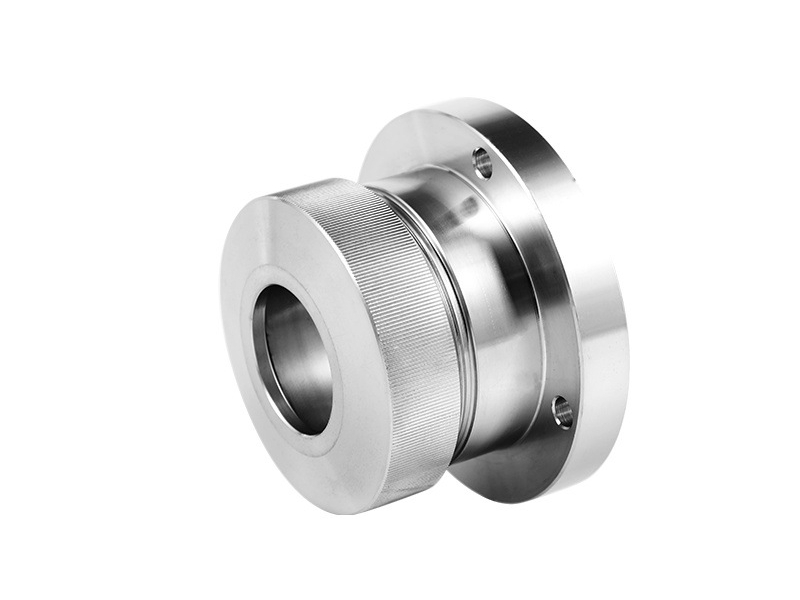Rapid Prototyping of Custom Plastic Parts Using CNC Turning for Industrial Equipment
Accelerating Innovation in Heavy-Duty Applications
Industrial equipment manufacturers require rapid prototyping to validate designs under real-world stresses like 200+ bar hydraulic pressures and abrasive particulate exposure. CNC turning enables the production of functional plastic prototypes within 72 hours, 5x faster than injection molding. Multi-axis CNC turning services deliver gear housings, valve bodies, and sensor mounts in engineering plastics with ±0.025mm tolerances for immediate field testing.
The shift toward IoT-enabled machinery demands materials like PEEK HP3 with conductive coatings for EMI shielding, enabling direct integration of sensors into prototype components.
Material Selection: Engineering Plastics for Demanding Environments
Material | Key Metrics | Industrial Applications | Limitations |
|---|---|---|---|
140°C continuous use, 90 MPa tensile | High-temperature valve seats | 5x cost vs standard nylons | |
80 MPa UTS, 2% moisture absorption | Gear prototypes, conveyor components | Warpage risk in thin-walled designs | |
0.17 CoF, 40 MPa yield strength | Wear strips, chute liners | Poor dimensional stability above 80°C | |
70 MPa UTS, 0.1% water absorption | Precision bushings, cam followers | Susceptible to chlorine degradation |
Material Selection Protocol
Hydraulic System Prototypes
Rationale: PEEK's 140°C thermal stability and 0.02% creep at 50 MPa stress outperform metals in oil-immersed environments. Post-machining PTFE impregnation reduces friction by 40%.
Validation: ISO 527-2 testing confirms 10⁷ cycle lifespan at 100 bar pulsating pressures.
Abrasion-Resistant Components
Logic: UHMW-PE's 0.17 coefficient of friction withstands 50 mg/m³ particulate concentrations, outperforming steel in mining equipment prototypes.
Cost-Driven Functional Testing
Strategy: Nylon 66 GF30 provides 80% of PEEK's mechanical properties at 20% cost for preliminary load validation.
CNC Machining Process Optimization
Process | Technical Specifications | Applications | Advantages |
|---|---|---|---|
8,000 RPM, 0.05mm chip load | Thin-walled housings (1-3mm walls) | Prevents thermoplastic deformation | |
-196°C LN₂ cooling, Ra 0.8μm | Glass-filled nylons, PEEK | Eliminates melting/chipping | |
ACME 8G threads, 0.03mm pitch accuracy | Lead screws for actuators | 60% faster than tapping | |
0.005mm radius, 0.2μm Ra | Optical encoder disks | Achieves injection molding-grade finish |
Prototyping Workflow for Gear Housings
Rough Turning: Remove 70% material with PCD inserts (0.2mm DOC, 500 m/min)
Stress Relief: Anneal at 20°C below Tg for 2h
Finish Machining: Diamond tools achieve Ra 0.4μm sealing surfaces
Surface Treatment: Laser etching for oil-resistant identification marks
Surface Engineering: Functional Enhancements
Treatment | Technical Parameters | Industrial Benefits | Standards |
|---|---|---|---|
5μm AlCrN, surface resistivity 10² Ω/sq | EMI shielding for IoT sensor housings | IEC 61000-6-2 | |
Ra 0.1μm, 0.5μm material removal | Ultra-smooth fluid flow surfaces | ASME B46.1 | |
50μm thickness, 5,000h QUV stability | Outdoor equipment components | ASTM G154 | |
NSF H1-certified impregnation | Conveyor parts in processing plants | FDA 21 CFR 175.300 |
Coating Selection Logic
Explosive Environments: Anti-static coatings maintain surface resistivity <10⁶ Ω/sq per ATEX 114 directives.
Chemical Processing: PTFE coatings withstand 30% sulfuric acid exposure for 5,000+ hours.
High-Vacuum Systems: Plasma-etched surfaces achieve outgassing rates <10⁻⁹ Torr·L/s/cm².
Quality Control: Industrial-Grade Validation
Stage | Critical Parameters | Methodology | Equipment | Standards |
|---|---|---|---|---|
Material Certification | Melt flow index (MFI) ±10% | Capillary rheometer | Tinius Olsen MP1200 | ISO 1133 |
Dimensional Inspection | Wall thickness uniformity ±0.1mm | Ultrasonic thickness gauge | Olympus 38DL PLUS | ASME B46.1 |
Functional Testing | 150% overload for 24h | Servo-hydraulic test frames | MTS 322 Load Frame | ISO 20417 |
Chemical Resistance | Weight change <1% after 168h immersion | FTIR spectroscopy | Thermo Scientific Nicolet iS20 | ASTM D543 |
Certifications:
ISO 9001 compliant rapid prototyping
UL 94 V-0 flammability certification
Industry Applications
Hydraulic Manifolds: PEEK HP3 + conductive PVD (EMI shielding)
Mining Conveyor Shoes: UHMW-PE + plasma etching (Ra 0.1μm)
Food Processing Valves: Acetal + NSF H1 lubrication
Conclusion
Rapid CNC turning services enable functional plastic prototypes for industrial equipment within 3-5 days, accelerating development cycles by 70%. Leverage our ISO-certified prototyping to validate designs under real operating conditions.
FAQ
How does CNC-turned PEEK compare to molded parts?
What surface treatments prevent static buildup in plastics?
How to validate chemical resistance in prototypes?
Can UHMW-PE prototypes match production part wear rates?
Lead time comparison: CNC vs 3D printing for nylons?

